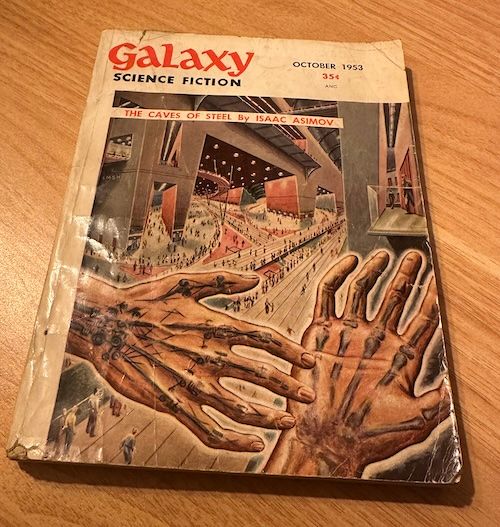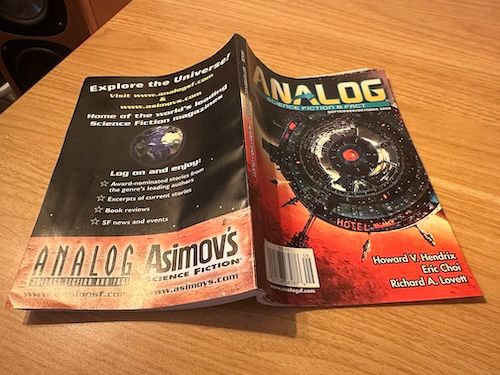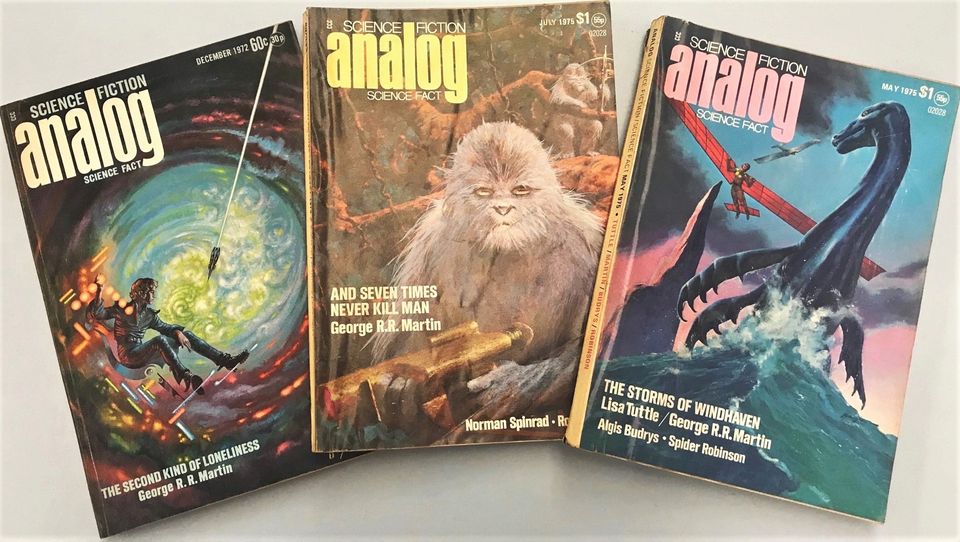I write Science Fiction. Right now, I write for myself. I have no false pretenses that I will ever become a professional SciFi author or ever make a dime from my writing. In many ways I think I will be the happiest if I don't because there's something very different about doing something purely because you love it vs. doing it because you want to make money or develop a career.
We live in a world of "side hustles" where people have a day job, and then side hustles that they claim to love. I say claim because I think many of these side hustles are not things people actually love, it's just a way they've learned they can supplement their income.
I'll stop here for now but will definitely revisit this topic in the future because I do think it's a particularly interesting one in modern day society. But today I'm here to talk about Science Fiction magazines, likely a world you didn't know existed and over the next decade or two, might cease to exist.
First - what do I mean when I say Science Fiction Magazines? I mean magazines comprised of mostly short stories and novellas, and in this case, focused on the Science Fiction genre. These magazines played a core role in the world of fiction in the 1950's with authors like Isaac Asimov getting their start in publications like Galaxy Science Fiction.

I actually have this issue of Galaxy, originally published in October of 1953 sitting on my desk - it's a very special issue for me and reminds me why I write. Sidenote, if you haven't read Caves of Steel by Isaac Asimov, you should - it's a masterpiece.
Transporting yourself back to the 1950's the ability to consume or experience Science Fiction was nothing like it is today. There weren't countless SciFi tv shows or books, heck in 1950 only 9% of American households owned a TV. So for anyone that wanted to immerse themselves in the magical world of Science Fiction, books and magazines like Galaxy were the way to go.
Today, some of these magazines still exist but their reach and impact has wildly diminished over the years. At the same time, the process to get a story into one of these publications is exceptionally challenging as they are very selective. For many aspiring Science Fiction writers, getting their story in a Science Fiction magazine is an absolute dream.
While there are more Science Fiction magazines than you'd imagine, likely a few dozen still in active circulation, three get the most attention.
My guess is that getting a story into one of these three magazines is harder than getting into Harvard, and the process is a lot more mercurial. I recently submitted a story to Analog and it took four months to hear back and like most writers, the feedback I got was short and sweet - just not what they're looking for. I submitted to Asimov's and I heard back within 24 hours, also rejected.
Rejection is a core part of doing just about anything. Starting a company and pitching VCs? Expect a lot of rejection. Want to become a musician or an actor, get used to it. So it should come as no surprise to writers that most of the time you'll be rejected, and if you're accepted into one of these prestigious magazines, we're talking payment in the hundreds of dollars in most cases.
Still, as a Science Fiction fan, I subscribe to a number of these magazines and when they arrive, it's a somewhat sublime feeling the first time I crack one open and start looking through the stories. Within the short, stout newsprint pages are the most wild and imaginative stories, and unlike movies and tv shows, they weren't created with the goal of achieving incredible commercial success, they were created by the passion for pure imagination.

Right now I'm reading stories from the latest issue of Analog and they are just so insanely awesome in every way. The ideas that people think up are so interesting and I can't help but think of the journey each writer has taken, likely decades of writing, to get that one story in a magazine like this.
At the same time, while I'm holding the magazine in my hands, watching my fingers change color as the ink from the newsprint makes its mark, I have to wonder how long these will continue to exist? In a world of Marvel Movies and unlimited Science Fiction series options on Netflix will the Science Fiction writer who just writes for fun go the way of the dodo?
I don't know the answer but I do know that the stories these magazines share represent a window into a different world. A world where people think up amazing stories and do their best to share them with as many people as they can. That number used to be millions, now it's hundreds of thousands, and a decade from now it will probably be even less.
My guess is I'll never be published in one of these, and that's okay - it's an honor to submit and with each rejection I get a little buzz just from knowing that someone over there read (or at least that's my hope!) what I wrote. I'm content coming up with my own wild and wacky stories for myself, in many ways this is the joy of pure creativity - doing it simply for the sake of being creative.
Modern society is so focused on doing things that become your new "side hustle" or help you become an influencer or a thought leader. What if you just want to think of wild and crazy worlds that don't exist, that will never exist, and write about them for no real reason other than that it's fun? To me, this is living.
